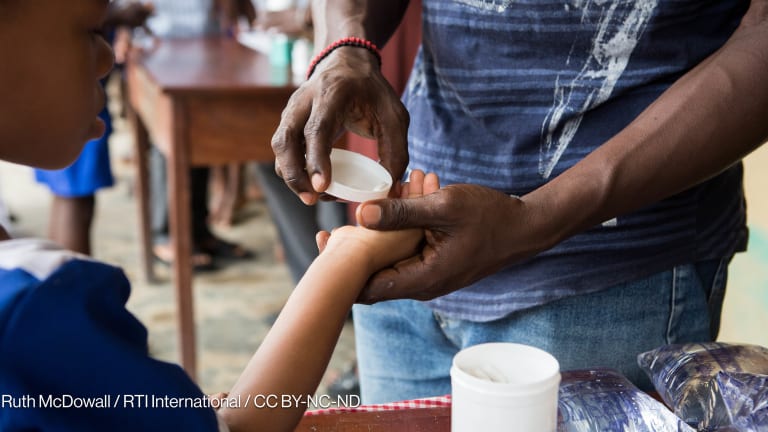
Some diseases get all the attention. Not so for a set of parasitic and bacterial infections that afflict more than 1.4 billion people worldwide. These neglected tropical diseases don’t tend to grab the headlines yet they can be easy, even inexpensive, to treat.
Seven illnesses cause 90 percent of the neglected disease burden in sub-Saharan Africa. A “rapid impact package” containing donated medication costs as little as 50 cents per person per year, less than a song on iTunes, according to the The END Fund to Fight NTDs in Africa.
Set up by Legatum, the Campbell Family Foundation, Dubai Cares and the Bill & Melinda Gates Foundation, the END Fund is trying to galvanize everyone from millionaires to impact investors to pitch in.
Ellen Agler, the fund’s recently appointed CEO, says she was motivated to work on NTDs because the social seclusion, stigma and suffering they cause can be alleviated with simple, high-impact interventions. We asked her how she manages to convince big donors to pay attention to her cause.
Neglected diseases are neglected for a reason. What are the top tactics you use to secure funding?
They’re not just neglected diseases, they’re neglected people. They’re the poorest of the poor, living at the end of the road, and they’re not top of the line for a lot of people, so they don’t deploy funding.
A lot of it is just raising awareness. We talk a lot about these diseases to individuals, corporations, foundations and organizations. Most diseases are quite expensive to treat on an individual basis. But for the seven most common diseases in sub-Saharan Africa, because the drugs are donated, we can deliver them for as little as 50 cents per person, per year. So, getting that message out on the cost per beneficiary and return on investment is a great way to raise awareness.
How do you bring up deworming at a dinner party?
Anybody who has a dog or a horse knows about deworming, so as soon as anybody brings up their pets, I jump straight into deworming! I think the best way to talk about worms is just bring it up in a light way but then share what a great impact and what a huge burden it has.
Oftentimes, people don’t realize what a problem it was in the U.S: Decades ago, when the Rockefellers first set up their foundation, it was to eradicate hookworm in the American South. People were tired all the time, they were anemic from hookworm, their bellies were full of worms. They weren’t able to engage in economically productive activities. If you talk to old-time doctors who were working in the poorest areas of Appalachia, one of the first things they would do was prescribe deworming medicine because there was such a high worm load, especially in kids. Once they were able to do mass deworming, it helped a lot of people and it helped industry grow.
So it’s also reminding some of these people that these diseases are not very far from home. And some neglected tropical diseases still are in this country. Like Chagas and dengue, in places like Texas, are still quite common.
There’s a concern that by funding specific diseases, you’re “siloing” them instead of addressing global health concerns holistically and on a systems level. A valid criticism?
There’s a constant debate between vertical programs versus horizontal programs and what’s going to be more effective. Now people are talking about it not being horizontal or vertical but diagonal, and integrating vertical programs so that they strengthen local health systems. And that really is the way to do it.
The NTD programming is taking individual disease programs where previously worms would have been treated through one program, lymphatic filariasis through another program, and schistosomiasis through another, and bundling them together. So instead of doing seven different campaigns for drug distribution, you’re doing one through a rapid impact package that can treat all those diseases together.
This actually means working on a health systems level to reduce that burden and reduce the amount of logistics that are needed. Bundling vertical programs together and embedding them within national health systems makes sure that we are contributing to health systems strengthening at the same time. We had that very much in mind.
Read our previous 3 Questions for IFAD’s partnership czar Mohamed Beavogui.








